Love it or loathe it, the carnivore diet is gaining popularity as a quick and natural way to lose weight, curb inflammation, and, some claim, address chronic conditions.
But can you get enough nutrients while eating exclusively animal foods?
Although proponents of a purely carnivorous (all meat all the time) approach say supplementation is not required, critics warn that cutting out entire food groups may leave you susceptible to nutrient deficiencies or insufficiencies.
Ultimately, there is a lack of high-quality, long-term studies on the nutritional effects of the carnivore diet.
Therefore, many nutrition experts recommend specific supplementation to help ensure your nutrient needs are met.
How Supplements Can Support a Carnivore Diet
As with any very restrictive diet, the carnivore diet may limit your intake of vital nutrients like vitamins, minerals, essential fatty acids, fiber, and antioxidants.
That said, animal products do contain a wealth of specific nutrients, like B vitamins, zinc, omega-3 fatty acids, iron, and vitamin A.
However, the amounts can vary widely depending on the type and quality of meat you’re consuming. For example:
- Organ meats are typically much higher in vitamins, like vitamin A, certain B-vitamins, and even calcium, than muscle meats.
- Wild-caught, fatty fish and pasture-raised eggs contain an abundance of omega-3 fatty acids, whereas farmed fish and conventional eggs do not.
- Grass-fed or pastured meats have been shown to be more nutritious than conventional varieties, and may contain more essential fatty acids, beta carotene (a precursor to vitamin A), and vitamin E.
If you’re eating organ meats regularly and exclusively pastured meats, eggs, and dairy, you may not need as many supplements as someone who doesn’t.
However, you’ll still likely be missing out on various essential plant-derived nutrients, which is where high-quality supplements can help.
10 Best Supplements For The Carnivore Diet
One of the biggest criticisms of the carnivore diet is the lack of research supporting the theory that an all-meat diet can meet your daily nutrient requirements.
Proponents of the diet cite some small studies and the health of indigenous tribes who survived and thrived on a diet mainly consisting of animal foods.
Ultimately, more research is needed to understand how the carnivore diet may affect nutrient levels in the twenty-first century.
We must also keep in mind other lifestyle factors that can impact nutrient status, regardless of diet, such as genetics, stress levels, pre-existing conditions, and medications.
The following nine supplements can help fill in nutrient gaps while on the carnivore diet and support your body's adaptation to a diet higher in fat and dense proteins.
1. Digestive Enzymes
Switching to an all-meat diet, especially one that touts the benefits of organ meats and high-fat meats, can cause some digestive complaints, such as bloating, gas, or a slowing of digestion.
This is a natural sensation as fatty animal protein generally takes more time and energy to digest than plant protein.
Natural digestive enzymes found in Betaine Hydrochloride, Full-Spectrum Maxi-Zyme®, and Tropical Papaya help support normal stomach acid and break down fats and proteins to aid digestion.
2. Vitamin C
Vitamin C is an essential vitamin and antioxidant that plays a role in immune support, collagen formation, and iron absorption.
It’s also one of those nutrients you just can’t get enough of from animal foods alone.
Yes, some animal foods, like organ meats, may contain small amounts of vitamin C, but it’s not enough to meet the recommended daily values.
This makes vitamin C supplementation while on a carnivore diet essential, especially if you’re limiting all fruits and vegetables.
The recommended daily amount of vitamin C for adults is between 70 and 90 mg, although some people need more.
It's also worth noting that some experts believe its immune-supportive effects may especially important during times of dietary change.
Fortunately, vitamin C supplements are widely available and very affordable.
Vitamin C comes in capsules, chewables, or powders such as Country Life’s Chewable Acerola Vitamin C and Buffered Vitamin C With Bioflavonoids.
3. Vitamin D
Vitamin D deficiency and insufficiency are common across nutritional philosophies.
Whether you’re vegan, carnivore, fruitarian, or omnivore, unless you spend a lot of time outside without sunscreen, chances are you may benefit from supplementation.
This essential vitamin, antioxidant, and hormone helps support bone density, hormonal function, immunity, skin health, and hormonal function.
It’s also unique in that its most potent source is the sun, and not foods (meat or otherwise).
The recommended daily amount of vitamin D is 600–800 IU for adults and 400–600 IU for infants, children, and adolescents, depending on age, but many doctors and practitioners recommend more.
Your doctor or healthcare practitioner can order a vitamin D serum test to check your levels and recommend the best dose.
Country Life offers several vitamin D supplements, including those sourced from sheep (lanolin).
Just look for the products without the vegan or vegetarian symbols, such as our Vitamin D3 softgels.
Shop Country Life’s Vitamin D supplements.
4. Omega-3s
If you’re on the carnivore diet, you’ve probably read about the benefits of omega-3s commonly associated with supporting heart, joint and cellular health
Fatty fish are one of the richest sources of omega-3 fatty acids, so if you’re eating a lot of fatty fish, you may not need to supplement.
Grass-fed meats and pastured eggs also contain more omega-3 fatty acids than conventional meats and are a decent source.
However, fatty meats, like those recommended on the carnivore diet, also contain omega-6 fatty acids, which are proinflammatory, especially if consumed in greater amounts than omega-3s.
Some research suggests that a balanced ratio of omega-3 to omega-6 fatty acids may support overall wellness.
If you’re unsure if you’re attaining this ratio, especially if you’re not eating grass-fed meats or fatty fish, a fish oil supplement can help.
Country Life® offers a clean, purity-tested Omega-3 supplement sourced from the low-mercury fish, salmon, mackerel, anchovies, sardines, and herring (SMASH), including:
Learn more in: The Best Omega-3 Fatty Acid Supplement & Food Sources
5. An Iron-Free Multivitamin
Multivitamins offer nutritional insurance, ensuring you don’t miss out on any essential nutrients like vitamin C, B vitamins, and zinc.
They can be especially valuable when you’re on a very restrictive diet.
However, there are some caveats for the carnivore diet.
If you’re eating a lot of red meat, which is rich in iron, you’ll generally want to stick with an iron-free multivitamin, as excess iron can be toxic.
If your diet is rich in organ meats, consider monitoring your vitamin A intake from supplements and foods.
Although rare, excessive intake of vitamin A may cause adverse effects. Consult your healthcare practitioner before use.
Finally, try to choose a multivitamin with minerals like magnesium, calcium, copper, and potassium, which may also be lacking from a meat-only diet.
For carnivores, consider:
6. Magnesium
Magnesium is an essential mineral that plays a role in over 300 enzymatic reactions!
Often called the anti-stress mineral, magnesium helps promote muscle strength, healthy bones, restful sleep, digestion, and exercise recovery, while supporting hormonal balance.
Unfortunately, it can be tough to get enough magnesium while on a carnivore diet as it’s found most abundantly in plants, including leafy greens, legumes, and mangoes.
Certain medications, such as birth control pills and proton pump inhibitors, as well as chronic stress, may affect your magnesium levels.
The good news is that magnesium supplements are generally very safe to take and inexpensive.
The recommended daily amount of magnesium for adults, age 19 and up, is between 310 and 420 mg.
Unfortunately, it’s not possible to accurately test your magnesium levels because only about 1% of it is stored in the blood.
Therefore, check with your healthcare practitioner for individual recommendations.
If you’re having constipation issues, magnesium citrate has been shown to help with that.
Popular for its superior absorption, chelated magnesium glycinate is a supplement-friendly form of magnesium.
Country Life also offers a Calcium Magnesium Potassium supplement, which can be helpful if you need extra potassium, calcium, and magnesium.
Learn more in: Magnesium Glycinate vs. Citrate: Which Form Is Best?
Shop Country Life Magnesium Supplements.
8. Fiber
The lack of fiber is one of the most controversial aspects of the carnivore diet.
Including fiber in your diet supports healthy digestion, heart and gut health, immune function, and maintaining a healthy weight.
Some advocates of the carnivore diet suggest your body won’t miss the fiber once adapted to this nutrient-rich diet, but scientific evidence to support this is limited.
The recommended daily intake of fiber is between 25 and 38 grams daily, depending on gender and age.
If you want to stick with a carnivore diet, the obvious solution is to take a fiber supplement.
When selecting the right supplement, watch out for those with sugars, artificial flavors, colors, or preservatives, and make sure it contains enough fiber to help meet your daily requirements or goals.
Some natural low-carb options include psyllium, acacia fiber, or pectin.
Check with your healthcare practitioner for dosage recommendations based on your diet.
9. Potassium
You’ve probably seen people talking about electrolyte supplements in carnivore diet forums and articles.
Limiting carbohydrates and potassium-rich foods may lead to water loss, which may affect electrolyte balance, including sodium, potassium, and magnesium.
Starting a low-carb diet can change fluid and mineral balance in the body. Electrolytes help support normal hydration and muscle function during these changes.
Fortunately, the carnivore diet allows salt, which can act as a source of electrolytes, especially mineral-rich varieties.
Still, some people choose to supplement with electrolyte powders, supplements, drinks, or by taking potassium in their multivitamin or as a stand-alone supplement.
The recommended adequate intake for potassium in adults is 2600 mg for women and 3600 mg for men.
As mentioned previously, Country Life’s Calcium Magnesium Potassium supplement is a popular choice for those on a low-carb, keto, or carnivore diet.
Our previously mentioned iron-free multivitamins also contain a small amount of potassium (1-2% of the DV), and we offer a standalone potassium supplement as potassium citrate or potassium amino acid chelate.
Your Best Supplements For the Carnivore Diet
Supplements can go a long way in helping you get the results you want from a ketogenic diet without sacrificing optimal nutrition.
Here’s a quick reference list with links to the best ketogenic diet supplements discussed in this article:
Buffered Vitamin C With Bioflavonoids
Potassium
What makes Country Life supplements different?
Since 1971, Country Life has been a pioneer in formulating and manufacturing high-quality dietary supplements to support a healthy lifestyle.
Here’s what makes our supplements different:
- All supplements are certified gluten-free by the Gluten-Free Certification Organization (GFCO)
- Our supplements are tested to ensure quality, purity, and potency
- Our manufacturing facilities are certified organic and cGMP
- We’re a certified B-Corp
All this means you’re getting the highest quality supplements designed to support your health, energy, and vitality with nothing to hold you back!
Curious about how to supplement for other dietary approaches? Check out the following articles:
- A Guide To Vitamins And Supplements While On GLP-1
- 5 Recommended Supplements For Men
- 10 Best Supplements For The Keto Diet
References Mentioned in This Article
- “A review of fatty acid profiles and antioxidant content in grass-fed and grain-fed beef”. Nutrition Journal.
- “Thinking of adding more fish to your diet? Consider the health risks of farm-raised seafood.” UCLA Health.
- “Research shows eggs from pastured chickens may be more nutritious”. Penn State University.
- “Effects of protein on glycemic and incretin responses and gastric emptying after oral glucose in healthy subjects”. The American Journal of Clinical Nutrition, Volume 86, Issue 5, 1364 - 1368
- “Animal and plant‐based proteins have different postprandial effects on energy expenditure, glycemia, insulinemia, and lipemia: A review of controlled clinical trials”. Food Science & Nutrition.
- “Symptoms during initiation of a ketogenic diet: A scoping review of occurrence rates, mechanisms and relief strategies”. Frontiers in Nutrition.
- “Vitamin C and Skin Health”. Oregon State University Linus Pauling Institute
- Micronutrient Information Center.
- “Vitamin C: A Comprehensive Review of Its Role in Health, Disease Prevention, and Therapeutic Potential”. Molecules.
- “Vitamin C Fact Sheet for Consumers”. National Institute of Health Office of Dietary Supplements.
- “Institute of Medicine, Food and Nutrition Board. Dietary Reference Intakes for Calcium and Vitamin D”. Washington, DC: National Academy Press, 2010.
- “Vitamin D Deficiency”. [Updated 2025 Feb 15]. In: StatPearls [Internet]. Treasure Island (FL): StatPearls Publishing.
- “Vitamin D as a Shield against Aging”. Int J Mol Sci.
- “Omega-3 Polyunsaturated Fatty Acids: The Way Forward in Times of Mixed Evidence”. BioMed Research International.
- “Omega-3 Fatty Acids”. The National Institute of Health Office of Dietary Supplements.
- “Health implications of high dietary omega-6 polyunsaturated Fatty acids”. J Nutr Metab.
- “Fish oil supplementation and insulin sensitivity: a systematic review and meta-analysis”. Lipids Health Dis.
- “The effect of Omega-3 fatty acid supplementation on weight loss and cognitive function in overweight or obese individuals on weight-loss diet”. Nutr Hosp.
- “Effects of Omega-3 supplementation on body weight and body fat mass: A systematic review”. Delpino, Felipe Mendes et al. Clinical Nutrition ESPEN, Volume 44, 122 - 129
- “Effects of Omega-3 Fatty Acids on Immune Cells”. International Journal of Molecular Sciences.
- “Magnesium Basics,” Clinical Kidney Journal, Volume 5.
- “Magnesium and Man: Implications for Health and Disease”. Physiological Reviews, Volume 96, Issue 1, Pages 1-46
- “Magnesium”. Oregon State University. Linus Pauling Institute Micronutrient Information Center.
- “Magnesium Status and Stress: The Vicious Circle Concept Revisited”. Nutrients.
- “The Health Benefits of Dietary Fibre”. Nutrients.
- “Therapeutic Benefits and Dietary Restrictions of Fiber Intake: A State of the Art Review”. Nutrients.
- “Position of the Academy of Nutrition and Dietetics: Health Implications of Dietary Fiber”. J Acad Nutr Diet.
- “Potassium Fact Sheet for Health Professionals”. National Institutes of Health Office of Dietary Supplements.


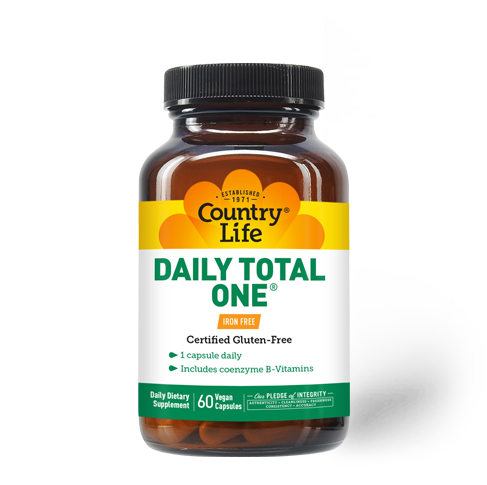
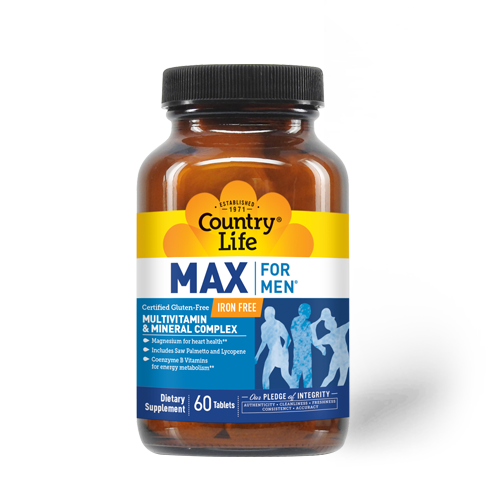
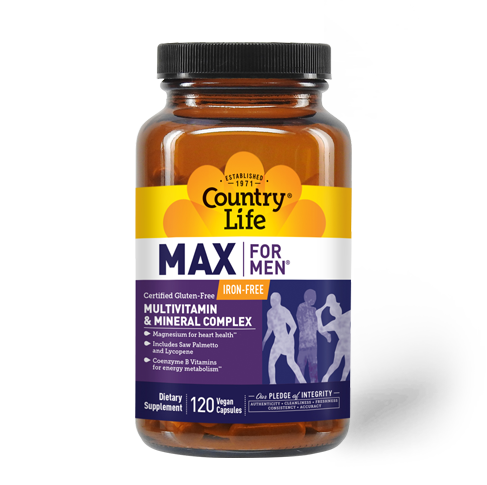
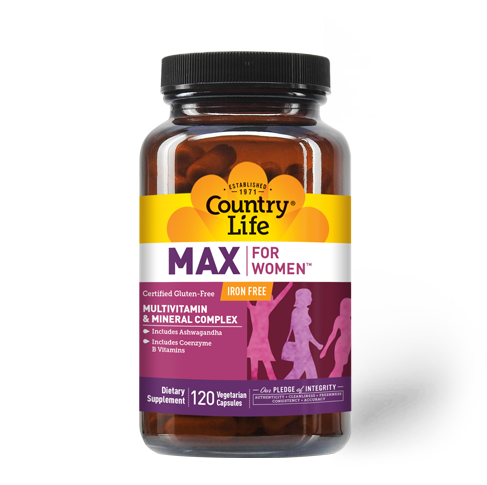
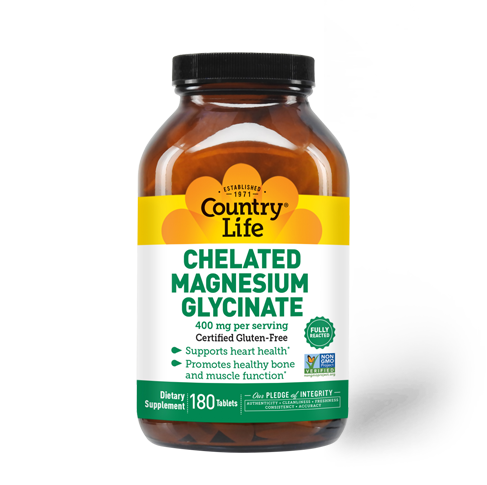
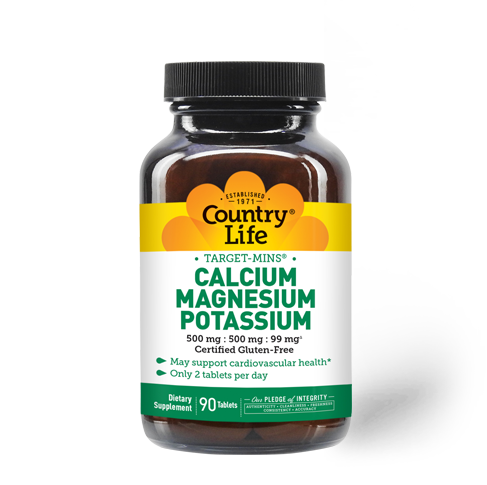










Share:
What Does Clean Eating Really Mean? How Supplements Can Help
7 Tart Cherry Benefits For Sleep, Exercise Performance & Recovery, Joint Comfort, & More